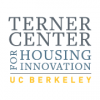Data on Families with Low Incomes Across America Can Inform Two-Generation Approaches
Publication
Mar 1, 2023
Research suggests that two-generation (2Gen) approaches can help interrupt the economic and social barriers to many families’ economic mobility and increased well-being and carry long-term benefits.


